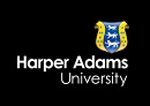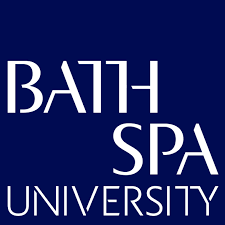The ethos of a specialist academic culture underpins Norwich University of the Art‘s strategy for research, which focuses on generating new forms of creative practice informed by critical and cultural perspectives. NUA works with Universities, museums, galleries, and creative and cultural industries throughout the world, seeking to explore new ways in which art, design and media practice, interpretation and curation contribute to contemporary culture, society and public well-being.
Research produced by NUA staff, students and collaborators interrogates the contexts in which art, design and media are produced, understood, used, exchanged and sustained, setting out to challenge conventions, provide new insights and develop original applications. Their outcomes provide audiences with access to creative disciplines, innovative practices and cultural heritage. In developing the University’s research, staff and students have been publicly recognised for their work in the UK, Europe, the US, South America, North Africa, the Middle East, Australia and Asia.
NUA’s portfolio of activities comprises the following Research Themes:
Cultural and Political Narratives
NUA research into cultural and political narratives questions the interpretation and representation of contested creative and material practices, focusing on the cultural and political networks in which art, design and media are produced, valued and consumed. Through contemporary and historical approaches engaging both practice and criticism, work developed in this area pioneers understandings of the complex circumstances underlying creative and cultural practices and forms of communication. From curating major exhibitions for international museums, to developing new forms of literary criticism and representation and preparing major scholarly contributions, research in this area has engaged diverse audiences in Europe, Australia, the Middle East and US.
Digital and Physical Interactions
NUA research into digital and physical interactions investigates attitudes and approaches to the understanding of complex phenomena underpinning human cognition, behavior and experience. Through cross-disciplinary research engaging expertise in the physical sciences, work developed in this area expands knowledge and awareness of human processes such as vision, memory, navigation and reproduction. From producing city-wide navigable digital interventions, to investigating eye movement and reading, and creating audio-visual installations to explore attitudes towards birth, memory and medical imaging, research in this area has been installed, exhibited, performed and distributed through galleries, clinical research centres and public events in the UK, Europe, Asia, Australia, North and South America.
Objects and Environments
NUA’s emerging research into objects and environments examines and develops insights into ways in which objects and environments are imagined, constructed and sustained. Through creative and theoretical practice, work developed in this area advances knowledge of human and cultural activities in areas such as design, architecture, pedagogy, museum and project learning, and textiles. Staff – in particular early career staff – and student research projects have been constructed in unique contexts, embedded in cultural organisations: from examining environmental frameworks for museum learning and live projects, to exploring cultural and historical attitudes to design.
Research Lead: Director of Research: Professor Alison Goodrum, a.goodrum@nua.ac.uk
Professor Alison L Goodrum was appointed as Director of Research at Norwich University of the Arts in May 2017. Previously, she has held academic posts at the University of Auckland, Nottingham Trent University and Manchester Metropolitan University. Alison’s research interests traverse the disciplines of fashion theory, dress history and cultural geography and her PhD (awarded 2001) considered the ‘Britishness’ of British fashion. Alison specialises in the management of postgraduate research, the practice-based PhD and the mentoring of early-career researchers. She sits on the editorial boards of a number of scholarly journals and regularly contributes to international conferences, academic publications and popular media. Alison’s academic blog is available at: https://stylestakesproject.wordpress.com









Recent Comments